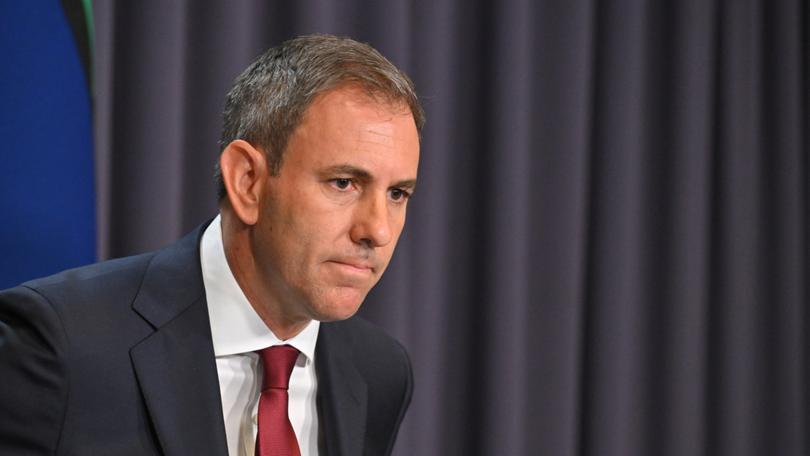Treasurer Jim Chalmers refuses to back down on RBA board shake-up
Jim Chalmers is determined to press ahead with his overhaul of the Reserve Bank in the face of demands for some changes from the centre-right opposition, foreshadowing a prolonged stalemate.

Jim Chalmers is determined to press ahead with his overhaul of the Reserve Bank in the face of demands for some changes from the centre-right opposition, foreshadowing a prolonged stalemate.
The Federal Treasurer said in an interview with Bloomberg that he had no intention of withdrawing the RBA reform legislation, urging the upper house of parliament to do “the right and sensible thing” and pass it.
The plan includes splitting the current board into a monetary policy committee and one focused on governance as recommended by a review of the central bank released in 2023.
Sign up to The Nightly's newsletters.
Get the first look at the digital newspaper, curated daily stories and breaking headlines delivered to your inbox.
By continuing you agree to our Terms and Privacy Policy.“We’ve tried very hard to make it as bipartisan as possible, and we need to bed down the recommendations. This is a really important review,’ Mr Chalmers said in Canberra. “Our central bank should be beyond the kinds of partisan politics that we see too often in the Senate.”
Shadow Treasurer Angus Taylor showed no signs of blinking on Sunday, saying that a failure to transfer the current six independent directors onto the new monetary committee was a “red line” for him.
“What we want to see is an independent Reserve Bank that is effective at fighting inflation and beating inflation on a sustainable basis. And anything that puts that at risk is something that we’re going to oppose,” Mr Taylor told the ABC.
Mr Chalmers wants current independent board members to have the option of joining either the new governance body or the monetary committee. Taylor says he doesn’t want the rate-setting body stacked with Labor government supporters. That’s left the legislation deadlocked in the Senate and likely delayed the start of the dual structure, which was due to begin July 1.
Some of the changes recommended by the RBA review have already been enacted, including a reduced number of policy meetings and post-meeting press conferences by Governor Michele Bullock.
However, splitting the board requires legislative underpinning and while it initially appeared the laws would have bipartisan backing, the growing feud over membership of the monetary policy committee has led to a deadlock.
Ms Bullock has said she wants some continuity between the current board and the new dual structure, but doesn’t have a strong view either way.
While a failure to enact the dual-board structure would be embarrassing for the centre-left government, it would have no effect on central bank policy making.
Bloomberg.
